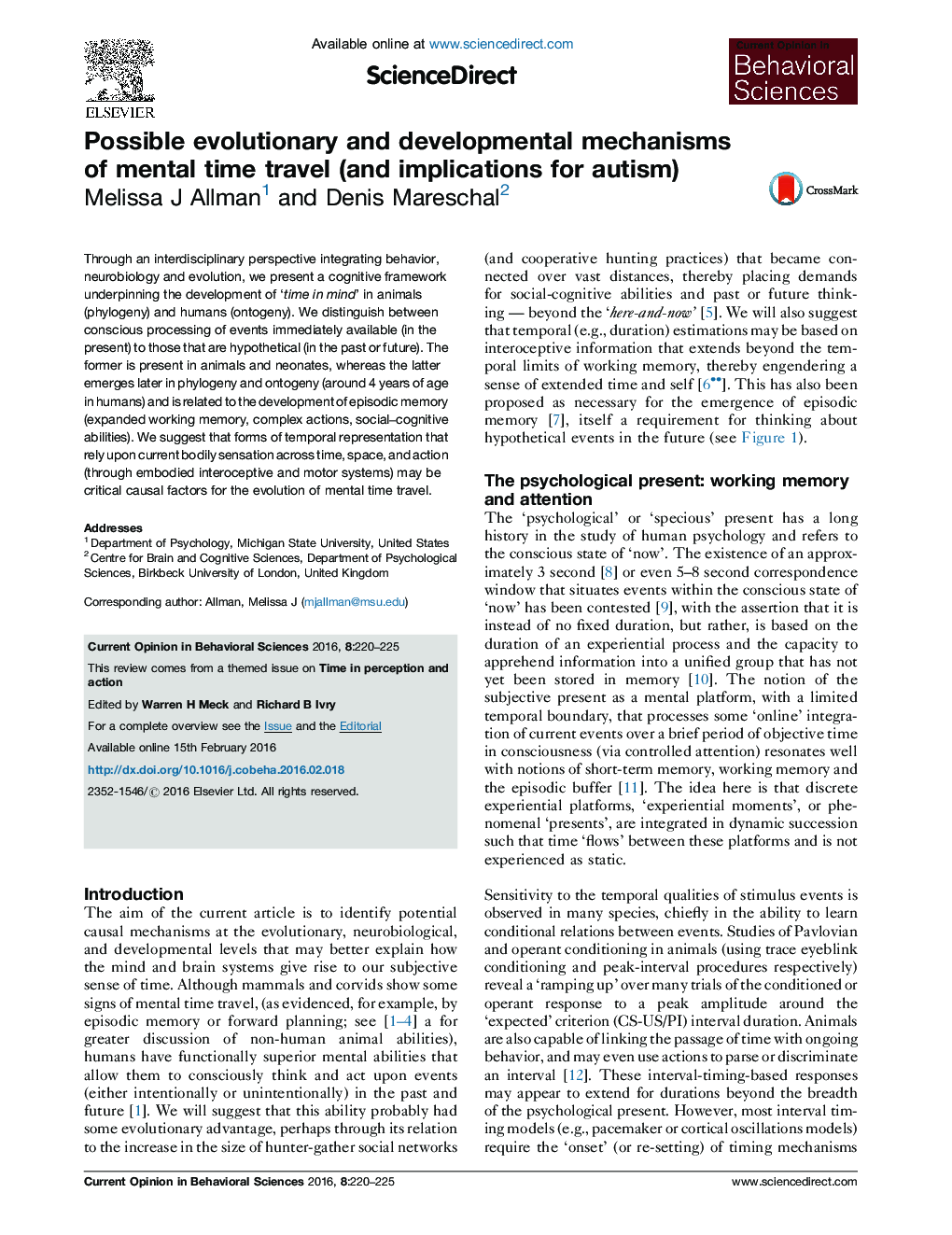| Article ID | Journal | Published Year | Pages | File Type |
|---|---|---|---|---|
| 6260544 | Current Opinion in Behavioral Sciences | 2016 | 6 Pages |
â¢Animals and infants appear to be 'bound' by stimuli/events in the present.â¢Children and adults can make adaptive use of past and future episodic memory.â¢Likely related to the expansion of working memory, and social-cognitive abilities.â¢Embodied sense of time may be a factor necessary for mental time travel.
Through an interdisciplinary perspective integrating behavior, neurobiology and evolution, we present a cognitive framework underpinning the development of 'time in mind' in animals (phylogeny) and humans (ontogeny). We distinguish between conscious processing of events immediately available (in the present) to those that are hypothetical (in the past or future). The former is present in animals and neonates, whereas the latter emerges later in phylogeny and ontogeny (around 4 years of age in humans) and is related to the development of episodic memory (expanded working memory, complex actions, social-cognitive abilities). We suggest that forms of temporal representation that rely upon current bodily sensation across time, space, and action (through embodied interoceptive and motor systems) may be critical causal factors for the evolution of mental time travel.
